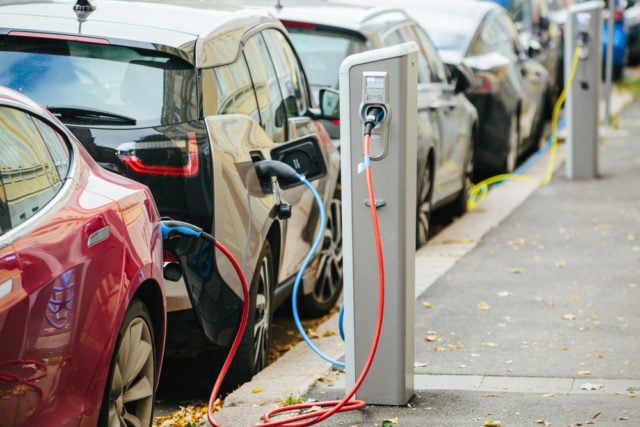In recent years, the automotive industry has witnessed a surge in interest towards electric vehicles (EVs) and hybrids as eco-conscious consumers seek alternatives to traditional gasoline-powered cars. In the Philippines, where concerns about air pollution and greenhouse gas emissions are growing, the debate between pure electric vehicles (EVs) and hybrids has intensified. Both options offer compelling advantages and drawbacks, making the decision of which to choose a complex one for Filipino drivers.
Pure Electric Vehicles (EVs)
Pure electric vehicles, commonly referred to as EVs, are powered solely by electric motors and rely on rechargeable batteries for their energy source. These vehicles produce zero tailpipe emissions, making them an attractive option for environmentally conscious consumers. In the Philippines, where urban air quality is a pressing issue, EVs offer a promising solution to reduce pollution levels in congested cities like Manila. Additionally, the maintenance costs of EVs are generally lower than those of traditional gasoline-powered vehicles due to fewer moving parts and simpler drivetrains.
Pros:
1. Environmentally Friendly- EVs produce zero tailpipe emissions, reducing air pollution and greenhouse gas emissions.
2. Lower Operating Costs: With fewer moving parts and no need for gasoline, EVs typically have lower maintenance and fuel costs over their lifetime.
3. Quiet Operation: Electric motors operate silently, contributing to a quieter urban environment.
4. Government Incentives: In some countries, including the Philippines, government incentives such as tax breaks and subsidies are available to promote the adoption of EVs.
Cons:
1. Limited Range: Most EVs have a limited driving range on a single charge, which can be a concern for drivers in the Philippines, where long distances between cities are common.
2. Charging Infrastructure:The availability of charging stations in the Philippines is still limited compared to gasoline stations, making long-distance travel challenging for EV owners.
3. Long Charging Times: Charging an EV can take significantly longer than refueling a gasoline vehicle, especially with standard charging equipment.
4. Upfront Cost: EVs often have a higher upfront purchase price compared to traditional gasoline-powered vehicles, although this gap is narrowing with advancements in technology and economies of scale.
Hybrid Vehicles
Hybrid vehicles combine an internal combustion engine with an electric motor and a battery pack. Unlike pure EVs, hybrids can rely on both gasoline and electricity for propulsion, offering the flexibility of extended range and reduced fuel consumption. In the Philippines, where infrastructure for EVs is still developing, hybrids provide a bridge between traditional gasoline vehicles and fully electric models, offering consumers the benefits of both worlds.
Pros:
1. Improved Fuel Efficiency: Hybrids typically achieve better fuel efficiency than traditional gasoline vehicles, reducing both fuel costs and greenhouse gas emissions.
2. Extended Range: With a combination of gasoline and electric power, hybrids offer a longer driving range compared to pure EVs, making them suitable for long-distance travel in the Philippines.
3. Lower Emissions: While not as clean as pure EVs, hybrids produce fewer emissions than traditional gasoline vehicles, contributing to improved air quality.
4. Regenerative Braking: Hybrids utilize regenerative braking technology, which converts kinetic energy into electricity to recharge the battery, increasing overall efficiency.
Cons:
1. Complexity: Hybrid vehicles have more complex drivetrains than traditional gasoline vehicles, which can lead to higher maintenance costs and potential reliability issues.
2. Limited Electric Range: Most hybrids have a limited electric-only range, relying primarily on gasoline for longer trips, which may not fully address the pollution concerns of environmentally conscious consumers.
3. Higher Upfront Cost: Like EVs, hybrids often come with a higher upfront purchase price compared to traditional gasoline vehicles, although savings on fuel costs can offset this over time.
4. Battery Degradation: The battery packs in hybrid vehicles can degrade over time, leading to reduced performance and increased maintenance costs as the vehicle ages.

In conclusion, both pure electric vehicles (EVs) and hybrids offer unique advantages and disadvantages for drivers in the Philippines. EVs provide zero-emission driving and lower operating costs but are limited by range and charging infrastructure. Hybrids, on the other hand, offer extended range and improved fuel efficiency but come with higher upfront costs and potential reliability issues. Ultimately, the choice between an EV and a hybrid depends on individual priorities, driving habits, and the availability of infrastructure in the Philippines. As technology continues to advance and infrastructure improves, both options are likely to play a significant role in shaping the future of transportation in the country.

